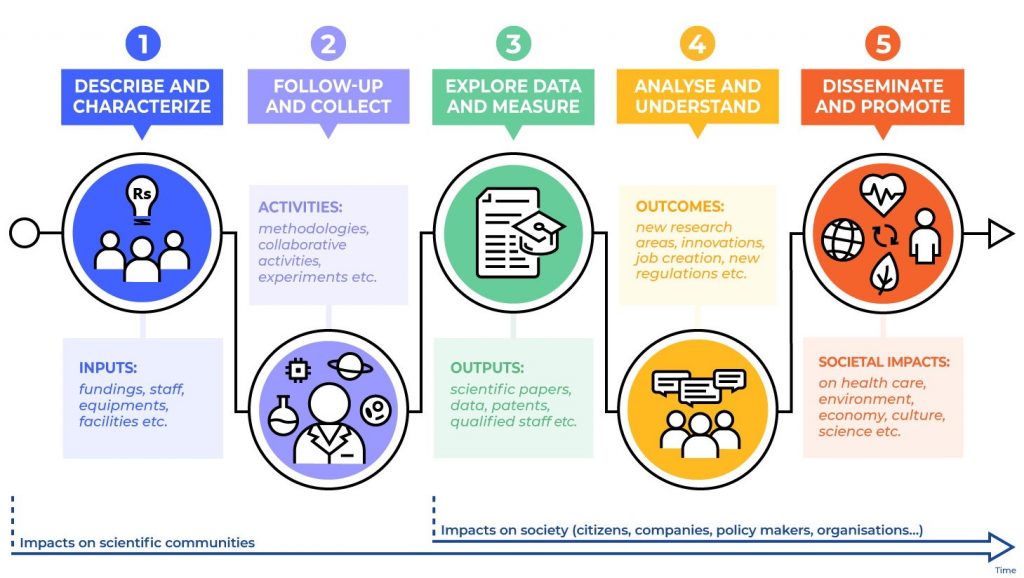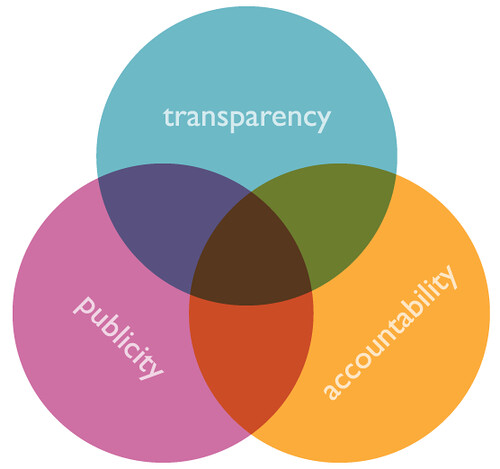

Corporate Social Responsibility (CSR) serves as a crucial mechanism empowering companies to undertake projects and programmes that support the underprivileged and hold themselves accountable for the proper execution of these initiatives. Notably, India emerged as a trailblazer in legally mandating CSR on April 1, 2014, through Section 135 of the Companies Act. This provision made it compulsory for profitable companies to engage in CSR initiatives and invest in projects with a positive social impact. According to this rule, these companies are to allocate 2 per cent of their average net profit from the preceding three financial years to development projects under CSR. This exploration will delve into the driving forces behind this transformative shift and its far-reaching implications.
For companies that practised responsible initiatives even before the formal coining of the term CSR, this transformative phase has encouraged them to reassess and re-strategise their implementation models and thematic areas. Also, they have now developed monitoring frameworks and policies to align with the legal requirements and effectively contribute to societal development. Since 2014, Corporate Social Responsibility has experienced noteworthy transformations, elevating it to a more integral aspect of modern business practices. Transcending the sole pursuit of profits, CSR now represents a company’s commitment to contribute to society and the environment.
Several factors have contributed to the increase in CSR investment, and this is a welcome development. CSR can help address extensive social and environmental challenges, such as healthcare, education, skill development, inequality, climate change, environmental degradation, and many others. By investing in CSR, companies add to their intrinsic value by undertaking projects they really care about and eventually positively impact society.
The new regulations played a pivotal role in providing a platform to support the impoverished and underscored the importance of inclusive growth and progress as we discussed development. Companies that embarked on this journey were legally obligated to devote time to fulfilling regulatory requirements and primarily focused on compliance. In India, companies directed their efforts in engaging with communities and addressing issues directly linked to their business objectives and goals. The investment in CSR has increased by 85 per cent since 2014-15[1], indicating that companies are enthusiastic about making a tangible impact on the ground. This is a positive development, as CSR can help address some of the most pressing social and environmental challenges facing the world today.
Several factors have contributed to the increase in CSR investment, and this is a welcome development. CSR can help address extensive social and environmental challenges, such as healthcare, education, skill development, inequality, climate change, environmental degradation, and many others. By investing in CSR, companies add to their intrinsic value by undertaking projects they really care about and eventually positively impact society.

Some companies have also established Section 8 companies (foundations/trusts) according to the law, and have been independently implementing CSR projects without involving implementing agencies. On the other hand, some companies actively seek NGO partners to collaborate on designing, creating, and implementing projects together.
 CSR has now become a widely used and accepted term, with companies carefully considering their CSR agenda to assist marginalised communities while enhancing their brand’s reach and positively influencing beneficiaries. Companies now understand the importance of strategising CSR initiatives that align with their brand’s focus. CSR has evolved beyond mere philanthropy, and Indian companies recognise that it is an integral part of their business, brand-building, and sustainability efforts.
CSR has now become a widely used and accepted term, with companies carefully considering their CSR agenda to assist marginalised communities while enhancing their brand’s reach and positively influencing beneficiaries. Companies now understand the importance of strategising CSR initiatives that align with their brand’s focus. CSR has evolved beyond mere philanthropy, and Indian companies recognise that it is an integral part of their business, brand-building, and sustainability efforts.
The recent amendments have also led to changes in reporting. The data concerning a company’s CSR budget, expenditures, the existence of a CSR Committee, executed activities, surplus generated, administrative overheads, and CSR registration number leave ample room for transparency. The focus on CSR efforts remains driven by the Board with a constant commitment to improving and bettering the welfare of communities. Recent amendments to the CSR Law emphasise the tracking and measurement of impact indicators. Additionally, these changes encourage meaningful collaborations with reputable implementing agencies capable of executing CSR projects on the ground.
While CSR has always been about executing impactful projects and benefiting the needy, the new regulations have added mandatory CSR spending requirements, activities listed in Schedule VII, and specific reporting obligations. However, this has led to a need for introspection and understanding of the impact of CSR efforts from a more strategic perspective. The focus now extends to leveraging in-house talent, targeting underfunded areas/locations with genuine needs, scaling up research-backed and innovative projects, and aligning CSR initiatives with the Sustainable Development Goals (SDGs).
The COVID-19 pandemic highlighted the importance of corporate responsibility and resilience in times of crisis. Many companies have adjusted their CSR strategies to provide support to their communities by offering essential provisions throughout the pandemic. Stakeholder-centric approaches and increased digitalisation have become crucial elements of CSR as businesses confronted the challenges brought about by the global health crisis.
 The recent amendments have also led to changes in reporting. The data concerning a company’s CSR budget, expenditures, the existence of a CSR Committee, executed activities, surplus generated, administrative overheads, and CSR registration number leave ample room for transparency. The focus on CSR efforts remains driven by the Board with a constant commitment to improving and bettering the welfare of communities. Recent amendments to the CSR Law emphasise the tracking and measurement of impact indicators. Additionally, these changes encourage meaningful collaborations with reputable implementing agencies capable of executing CSR projects on the ground.
The recent amendments have also led to changes in reporting. The data concerning a company’s CSR budget, expenditures, the existence of a CSR Committee, executed activities, surplus generated, administrative overheads, and CSR registration number leave ample room for transparency. The focus on CSR efforts remains driven by the Board with a constant commitment to improving and bettering the welfare of communities. Recent amendments to the CSR Law emphasise the tracking and measurement of impact indicators. Additionally, these changes encourage meaningful collaborations with reputable implementing agencies capable of executing CSR projects on the ground.
With growing awareness of ESG (Environmental, Social, and Governance) risks and opportunities, investors have started integrating sustainability factors into their decision-making processes. Socially Responsible Investing (SRI) and Impact Investing have gained traction, with investors seeking financial returns and positive societal and environmental impacts. This trend has incentivised companies to enhance their CSR performance to attract responsible investment and gain a competitive edge.
 Companies have recognised the importance of engaging a broader range of stakeholders, including employees, communities, NGOs, and governments. Creating shared value has become popular, emphasising that CSR initiatives should address societal needs while generating business value. Collaborative partnerships with stakeholders have played a pivotal role in addressing complex sustainability challenges.
Companies have recognised the importance of engaging a broader range of stakeholders, including employees, communities, NGOs, and governments. Creating shared value has become popular, emphasising that CSR initiatives should address societal needs while generating business value. Collaborative partnerships with stakeholders have played a pivotal role in addressing complex sustainability challenges.
CSR has made remarkable progress in its scope, integration, and impact since 2014. This evolution can be attributed to the growing realisation among businesses of the crucial importance of aligning their operations with societal and environmental goals. Today, CSR is no longer seen merely as a token effort but as an integral aspect of a company’s overall strategy and ethos, ingrained in its core values and business practices. The journey of CSR continues to be driven by a company’s ongoing commitment to shaping a more sustainable and responsible future for businesses and society at large.
Following the amendment, impact studies in India can now be conducted by proficient independent agencies specialising in evaluating progress and effectiveness. The Board has the authority to determine the eligibility criteria for selecting the independent agency to conduct the impact assessment. There are national and internationally accepted frameworks available for measuring impact indicators, which help identify needs, measure actual progress, and evaluate impact. This enables the alignment of objectives and the strategic planning of CSR projects, thus enhancing on-ground performance and shaping future interventions.
Amidst various modifications and changes, there has been a strong emphasis on measuring the impact of CSR activities undertaken by companies. The results from impact studies provide insights into the effectiveness of a company’s CSR efforts and guide the selection of appropriate impact indicators and metrics during the design of CSR projects. The growing focus on impact measurement has become a cornerstone of CSR activities, offering invaluable insights into the tangible difference companies create for various stakeholders.
To achieve a comprehensive understanding of the societal impact of their projects, companies are mandated to conduct impact assessments, a vital process in grasping the community’s utilisation of the project. These assessments involve evaluating the project’s progress and reach, allowing the identification of design gaps, and facilitating their resolution. Additionally, they aid in developing strategies to mitigate potential issues and effectively manage corporate CSR initiatives.
 Conducting impact assessments lends credibility to the project’s implementation in the field. The increasing emphasis on such studies signifies that companies are genuinely interested in assessing the real-time impact of their projects on the ground. Companies and implementing partners acknowledge the advantages and importance of these assessments as they provide tangible justifications for their work and contribute to project sustainability. Moreover, the ongoing need for impact studies is driven, in part, by the requirements set by funders and donors. These stakeholders seek transparency and accountability through concrete data and evidence of actual change resulting from the projects.
Conducting impact assessments lends credibility to the project’s implementation in the field. The increasing emphasis on such studies signifies that companies are genuinely interested in assessing the real-time impact of their projects on the ground. Companies and implementing partners acknowledge the advantages and importance of these assessments as they provide tangible justifications for their work and contribute to project sustainability. Moreover, the ongoing need for impact studies is driven, in part, by the requirements set by funders and donors. These stakeholders seek transparency and accountability through concrete data and evidence of actual change resulting from the projects.
Following the amendment, impact studies in India can now be conducted by proficient independent agencies specialising in evaluating progress and effectiveness. The Board has the authority to determine the eligibility criteria for selecting the independent agency to conduct the impact assessment. There are national and internationally accepted frameworks available for measuring impact indicators, which help identify needs, measure actual progress, and evaluate impact. This enables the alignment of objectives and the strategic planning of CSR projects, thus enhancing on-ground performance and shaping future interventions.
In my view, making a positive contribution to the community should not be considered an elective pursuit for corporations. Instead, it ought to be a responsibility they willingly undertake. Corporate India possesses the potential to shape culture and bring about substantial and meaningful change. CSR should go beyond superficial compliance and instead reflect a more profound sense of purpose and importance.
An essential aspect of impact assessment involves analysing both qualitative and quantitative data. The methodology used for study and data collection requires appropriate tools, approaches, and sampling methods. Identifying relevant stakeholders is vitally important, and ensuring precision in field observations and interviews is essential.
In conclusion, conducting impact assessments transcends mere regulatory obligations for certain companies; rather, it serves as a pathway to gaining profound insights into their investments and fostering effective collaboration with implementing agencies. This approach facilitates the enhancement of impact indicators and enables the attainment of optimal outcomes from CSR projects.

In my view, making a positive contribution to the community should not be considered an elective pursuit for corporations. Instead, it ought to be a responsibility they willingly undertake. Corporate India possesses the potential to shape culture and bring about substantial and meaningful change. CSR should go beyond superficial compliance and instead reflect a more profound sense of purpose and importance.
Ruchika Malhan Varma is the Chief Marketing Officer of Future Generali India Insurance India Company Ltd.
[1]https://amchamindia.com/wp-content/uploads/2021/01/AMCHAM-India-CSR-landscape-and-American-Corporations.pdf

